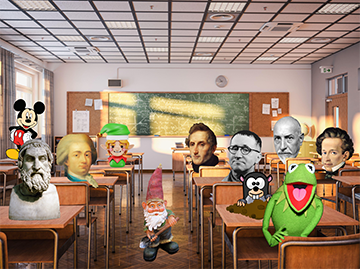In 1985, in Turin, a maxi-trial against the Catania mafia took place. One of the accused was Salvatore, a young boy destined to serve life. The day after the sentence, the judge started correspondence with him that was to last for twenty-six years. Mauro Avogadro stages the stage-play by Paolo Giordano based on Fine pena: ora, written by the judge Elvio Fassone.
-
Teatro Grassi
In 1985, in Turin, a maxi-trial against the Catania mafia took place. It lasted for almost two years. Among the accused was Salvatore, who although he was little more than a boy, had already left a trail of murders and criminal deeds: he was sentenced to life. A rapport of mutual respect, almost of trust, formed between him and the president of the Court of Assizes. The day after sentencing, on impulse, the judge wrote to him and sent a book to him in prison. It was the beginning of an exchange of correspondence that was destined to last for twenty-six years, during which time each of them lived their own lives: the judge following a career as magistrate and politician, until retirement, always questioning the sense of prison as a punishment; the prisoner, between the highs and lows of prison life, the hopes for rehabilitation and the suffering of the 41-bis restricted prison regime, a path of cultural emancipation - also thanks to the judge - and an attempted suicide.
Mauro Avogadro stages the stage-play that the writer Paolo Giordano based on Fine pena: ora, written by Elvio Fassone, one of the two protagonists - the judge - of the story. “What is fascinating about this work - explains Avogadro - is the complicity that forms between two people who are so different, both culturally and geographically, an upper-class man who “naturally” becomes a judge, and an underproletarian, from a area at risk, who just as “naturally” becomes part of the mafia. They are two extraordinary people who manage to become characters thanks to the work of two great actors. Alongside the exploration of very different forms of humanity is the pressing question on the sense of the punishment: can prison ever lead to rehabilitation? What are the dynamics within a prison that can improve or worsen the condition of a person? It is a sense of humanity which is generated by the situations and characters: one senses that the words that are written and spoken are living entities, placed in an emotional suspension that is created, in an epistolary relationship, between the sending of a letter and the wait for an answer”.
Duration: One hour and 45 minutes with no interval
Learn more
Booklet
ReadIn 1985, in Turin, a maxi-trial against the Catania mafia took place. It lasted for almost two years. Among the accused was Salvatore, who although he was little more than a boy, had already left a trail of murders and criminal deeds: he was sentenced to life. A rapport of mutual respect, almost of trust, formed between him and the president of the Court of Assizes. The day after sentencing, on impulse, the judge wrote to him and sent a book to him in prison. It was the beginning of an exchange of correspondence that was destined to last for twenty-six years, during which time each of them lived their own lives: the judge following a career as magistrate and politician, until retirement, always questioning the sense of prison as a punishment; the prisoner, between the highs and lows of prison life, the hopes for rehabilitation and the suffering of the 41-bis restricted prison regime, a path of cultural emancipation - also thanks to the judge - and an attempted suicide.
Mauro Avogadro stages the stage-play that the writer Paolo Giordano based on Fine pena: ora, written by Elvio Fassone, one of the two protagonists - the judge - of the story. “What is fascinating about this work - explains Avogadro - is the complicity that forms between two people who are so different, both culturally and geographically, an upper-class man who “naturally” becomes a judge, and an underproletarian, from a area at risk, who just as “naturally” becomes part of the mafia. They are two extraordinary people who manage to become characters thanks to the work of two great actors. Alongside the exploration of very different forms of humanity is the pressing question on the sense of the punishment: can prison ever lead to rehabilitation? What are the dynamics within a prison that can improve or worsen the condition of a person? It is a sense of humanity which is generated by the situations and characters: one senses that the words that are written and spoken are living entities, placed in an emotional suspension that is created, in an epistolary relationship, between the sending of a letter and the wait for an answer”.
Duration: One hour and 45 minutes with no interval
Learn more
Booklet
ReadMeetings and insights
Credits
Piccolo Teatro Grassi
from 21 November to 22 December 2017
Fine pena: ora
by Paolo Giordano
freely based on the book by Elvio Fassone
directed by Mauro Avogadro
sets Marco Rossi
costumes Gianluca Sbicca
lighting Claudio De Pace
music Gioacchino Balistreri
with Sergio Leone and Paolo Pierbon
A Piccolo Teatro di Milano – Teatro d’Europa production
Information and bookings
Telephone service 02.42.41.48.89
From Monday to Saturday 9.45 a.m. – 6.45 p.m.
Sunday 10.00 a.m. – 5.00 p.m.
Teatro Strehler
From Monday to Saturday 9.45 a.m. to 6.45 p.m.
Sunday 1.00 p.m. to 6.30 p.m.
On the evening of the performance the sale of tickets will close one hour before the performance begins.
Groups and organisations
For information on tickets and subscriptions for groups and organisations, and afternoon performances for schools and educational shows, please contact the Servizio Promozione Pubblico e Proposte Culturali.
Tel. 02.72.333.216
e-mail: promozione.pubblico@piccoloteatromilano.it
















